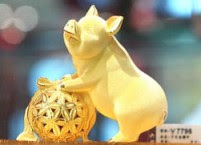
For months now, The Frost Report has been recommending the purchase of US bank stocks. For months now, US bank stocks have been dropping in price.
Earlier this week, Dick Bove of Rochdale Securities received a lot of heat after saying that people were “simply flipping out” about bank stocks, and that valuations were “ridiculous.” He pointed out, wisely, that although bank stock prices were falling, bonds prices were not.
Unlike stockholders, who tend to speculate, bondholders simply want the company to stay in business so they can collect interest and then get their money back. If a company is in danger of going bankrupt, bond prices drop. Yet, financial bond prices are holding steady, some even rising, showing that bondholders are not worried.
On Tuesday, billionaire Warren Buffett was at home taking a bath, thinking about how BofA was suffering confidence-wise and yet was solid financially. He called BofA and made them a win-win offer, and by Thursday morning (24 hours later) he owned 5 billion dollars worth of Bank of America, with warrants to purchase 700 million shares. When the news was released, BofA’s stock price rose 10% in a single day. Fortunately, I had loaded up on BofA stock just three days earlier, when it dropped after a string of rumor emails hit Wall Street claiming that the company was filing for bankruptcy.
US Banks are shouldered with large amounts of potential litigation (ie. they are being sued). They still own thousands of underwater mortgaged properties. Interest rate spreads are affecting bank profitability. Why would an investor with the stature of Warren Buffett be interested in buying bank stocks? Why would Berkshire Hathaway, Buffett’s company, be holding more than 40% of its total investments in the financial sector?
It’s simple. Great investors don’t care about rumors or fear, or whether the stock price is currently falling or rising – they just look at the facts. And, as a sound investment, the facts about banks are compelling. Bank of America is a perfect example:
Bank of America has a Mt. Everest balance sheet, with $140 billion in cash and more than twice that in securities. It actually has $13.86 in cash per share, yet the stock is trading at only $7.76. Put another way, for $7.76 you receive $13.86 in cash, $30 worth of securities, and a business that is gaining market share.
I have to admit, I have found the continuing drop in bank stocks to be both annoying (why are people still afraid?) and exciting (I can buy more!) at the same time.
Perhaps Buffett’s timely investment in Bank of America will finally make people see the light.
Update: On Monday Aug 29th, BofA announced it had successfully sold half of it's 10% stake in China Construction Bank, for a gross profit of 5.3 billion USD. A wise move if ever there was one.
____
"A public-opinion poll is no substitute for thought."
Warren Buffett
____
For more information, see:
Stock Market Flipping Out on US Banks
Buffett Bolsters Bank of America
BofA Sells Half of China Bank Stake, Raising $8 Billion
____








